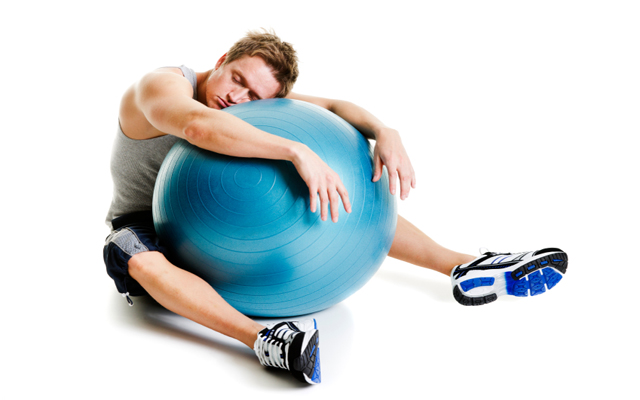By Michael Colgan, Ph.D.
All mammals, including us, run on an internal circadian clock. It developed in early forms of life, and has been conserved across the millennia to reside in us today. The clock times our physiology in precise rhythm with the most ancient environmental signal–light. Changes in the light created by the 24-hour revolution of the Earth on its axis provide the controls (1-4).
The retinas of your eyes transmit light to the clock in the suprachiasmatic nucleus (SCN) in the middle of your brain. The SCN then triggers thousands of physiological functions of the brain, hormones, muscles, and organs by the rhythmic nighttime release of the hormone melatonin from the pineal gland (1-6).
Melatonin regulates all aspects of human physiology, especially sleep/wake cycles, energy, hormone release, brain growth, muscle growth, and body fat. This activity uses daily expression of over 20 percent of your total genome, making melatonin the largest control system in human physiology (1-8).
Until recently, however, effects of melatonin could not be properly studied. Decoding of the human genome in 2003 first allowed researchers to examine the genes involved. Before then, the power of melatonin to control the whole daily cycle of human behavior was just not understood.
Recent research shows that disrupting the melatonin rhythm simply by restricting sleep to 6 hours a night, impairs learning, memory, glucose metabolism, immune function, appetite regulation, and athletic training (1-8). Not surprising that sports scientists are now doing intensive research on sleep, melatonin, and sports.
Performance is devastated by sleep deprivation, including:
- Peak power in cycling is significantly reduced (9).
- Knee extension strength declines in trained athletes (10).
- Strength in leg press, bench press, and dead lift is much reduced (11).
- Endurance performance also goes downhill, as does sprinting speed (12,13).
On top of worsened performance caused by inadequate sleep, inflammation and risk of illness go through the roof. With low melatonin levels and poor sleep, measures of inflammation, interleukins-1 and -6, and C-reactive protein all rise. Hormonal rhythms also decline causing impaired immune responses (14,15).
Athletes are always balancing muscle and body fat. Gain fat, and the extra dead weight reduces performance. Strip off too much fat and you also strip off muscle, which reduces performance. They have to keep body fat low while re-building muscle mass every day. This is a difficult task without an optimum melatonin rhythm, and the sound sleep it brings. Almost all muscle recovery and growth occurs during the melatonin phase of the cycle (1-6). And research shows clearly that partial sleep loss fattens you up like a goose (16).
Even minor disturbance of the melatonin rhythm also increases insulin resistance, and disrupts both glucose regulation and hormonal controls of appetite (16,17). The main appetite-inhibiting hormone is leptin. With normal melatonin, leptin rises during sleep and controls appetite, not only that night but also next day. The main appetite-stimulating hormone is ghrelin. With normal melatonin, ghrelin falls during sleep and rises to stimulate appetite the next day. Poor sleep and low melatonin tip the balance in favor of ghrelin, leading to increased appetite and food intake (18).
Levels of the catabolic hormone cortisol, also rise, and anabolic hormones decline, especially growth hormone and testosterone (19). These imbalances set up the low-melatonin athlete for muscle loss and fat gain that cannot be corrected by diet or training.
For the last 30 years we have used specific nutrition for athletes to maintain normal melatonin, and have been very successful with numerous elite athletes including World and Olympic Champions (20). The precursor of melatonin is the amino acid tryptophan, abundant in pumpkin seeds, free-range turkey, and IsaLean Shakes. Diets high in tryptophan increase tryptophan levels in the blood. It is converted in the brain to 5-hydroxytryptophan (5-HTP), then to melatonin (1-6).
We also use melatonin supplements. Most melatonin pills, however, are ineffective because up to 90 percent of the melatonin is destroyed by digestion and the first pass through the liver. That is why we designed the Isagenix Sleep Support & Renewal to effectively deliver the right forms of melatonin directly into the mouth. For the average athlete, 3 mg, or three sprays, at bedtime, reliably raises melatonin levels, which benefits the whole 24-hour circadian rhythm, yields better sleep, and improves athletic performance.
References
- Reiter RJ. Melatonin. New York: Bantam Books, 1995.
- Rojansky N, et al. Seasonality in Human Reproduction: An Update. Human Reproduction, 1992;7:735-745.
- Pierpaoli W, et al, (eds). The Aging Clock. New York: New York Academy of Sciences, 1994.
- Colgan M. Colgan LA. The Perimenopause Solution Vancouver: Science Books, 2010.
- Cutolo M, Maestroni G. The melatonin-cytokine connection in rheumatoid arthritis. Ann Rheum Dis. 2005; 64(8): 1109–1111.
- Cardinali DP, Esquifino AL. Circadian disorganization in experimental arthritis. Neurosignals, 2003;12:267-282.
- Erren TC, et al. Light, timing of biological rhythms and chronodisruption in man. Naturwissenschaften, 2003;90:485-494.
- Dawson KA. Temporal organization of the brain: Neurocognitive mechanisms and clinical applications. Brain Cogn, 2004;54:75-94.
- Souissi N, Sesboue B, Gauthier A, et al. Effects of one night’s sleep deprivation on anaerobic performance the following day. Eur J Appl Physiol. 2003;89(3–4):359–66.
- 20. Bulbulian R, Heaney JH, Leake CN, et al. The effect of sleep deprivation and exercise load on isokinetic leg strength and endurance. Eur J Appl Physiol. 1996;73:273–7.
- Blumert PA, et al. The acute effects of twenty-four hours of sleep loss on the performance of nationalcaliber male collegiate weightlifters. J Strength Cond Res. 2007;21(4):1146–54.
- Oliver SJ, Costa RJ, Laing SJ, et al. One night of sleep deprivation decreases treadmill endurance performance. Eur J Appl Physiol. 2009;107(2):155–61.
- Skein M, Duffield R, Edge J, et al. Intermittent-sprint performance and muscle glycogen after 30 h of sleep deprivation. Med Sci Sports Exerc. 2011;43(7):1301–11.
- Bollinger T, Bollinger A, Oster H, et al. Sleep, immunity, and circadian clocks: a mechanistic model. Gerontology. 2010;56(6): 574–80.
- Mullington JM, et al. Sleep loss and inflammation. Best Pract Res Clin Endocrinol Metab. 2010;24(5):775–84.
- Knutson KL, Spiegel K, Penev P, et al. The metabolic consequences of sleep deprivation. Sleep Med Rev. 2007;11(3):163–78.
- Spiegel K, Knutson K, Leproult R, et al. Sleep loss: a novel risk factor for insulin resistance and type 2 diabetes. J Appl Physiol. 2005;99(5):2008–19.
- Van Cauter E, Spiegel K, Tasali E, et al. Metabolic consequences of sleep and sleep loss. Sleep Med. 2008;9(Suppl. 1):S23–8.
- Dattilo M, et al. Sleep and muscle recovery: endocrinological and molecular basis for a new and promising hypothesis. Med Hypotheses. 2011;77(2):220–2.
- Colgan M. The anti-inflammatory Athlete. Vancouver: Science Books 2012.






